🍨 本文为🔗365天深度学习训练营 中的学习记录博客
🍖 原作者:K同学啊|接辅导、项目定制
1 Inception V1
Inception v1论文
1.1 理论知识
GoogLeNet首次出现在2014年ILSVRC比赛中获得冠军。这次的版本通常称其为Inception V1。Inception V1有22层深,参数量为5M。同一时期的VGGNet性能和InceptionV1差不多,但是参数量远大于Inception V1.
Inception Module是Inception V1的核心组成单元,提出了卷积层的并行结构,实现了在同一层就可以提取不同的特征,如下图(a)所示。

按照这样的结构来增加网络的深度,虽然可以提升性能,但是还面临计算量大(参数多)的问题。为改善这种现象,Inception Module借鉴Network-in-Network的思想,使用1x1的卷积核实现降维操作(也间接增加了网络的深度),以此来减少网络的参数量与计算量,如上图b所示。
备注举例:假如前一层的输出为100x100x128,经过具有256个5x5卷积核的卷积层之后(stride=1, pad=2), 输出数据为100x100x256.其中,卷积层的参数为5x5x128x256+256。例如上一层输出先经过具有32个1x1卷积核的卷积层(1x1卷积降低了通道数,且特征图尺寸不变),经过具有256个5x5卷积核的卷积层,最终的输出数据仍为100x100x256,但卷积参数量以及减少为(128x1x1x32+32)+(32x5x5x256+256),参数数量减少为原来的约四分之一。其计算量由原先的8.191x10e9,降低至2.048x10e9。
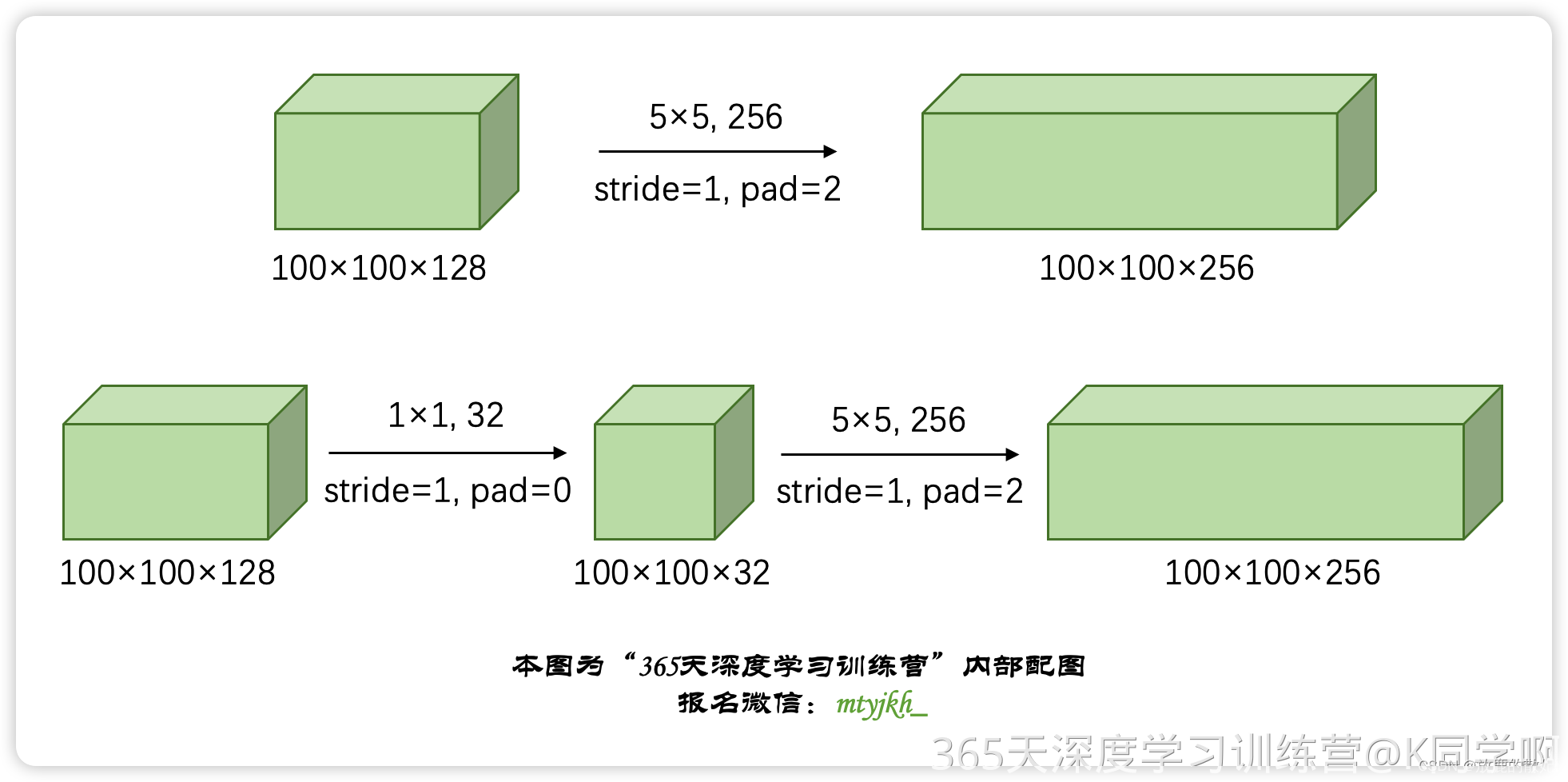
1x1卷积核的作用:1x1卷积核的最大作用是降低输入特征图的通道数,减少 网络的参数量与计算量。
最后Inception Module基本由1x1卷积,3x3卷积,5x5卷积,3x3最大池化四个基本单元组成,对四个基本单元运算结果进行通道上组合,不同大小的卷积核赋予不同大小的感受野,从而提取到图像不同尺度的信息,进行融合,得到图像更好的表征,就是Inception Module的核心思想。
1.2 算法结构
实现的Inception v1网络结构图如下所示:


注: 另外增加了两个辅助分支,作用有两点:
(1)避免梯度消失,用于前向传导梯度。反向传播时,如果有一层求导为0,链式求导结果则为0。
(2)将中间某一层输出用作分类,起到模型融合作用,实际测试时,这两个辅助softmax分支会被去掉。 在后续模型的发展中,该方法采用较少。
详细网络结构图如下所示:

2 代码实现
2.1 开发环境
电脑系统:ubuntu16.04
编译器:Jupter Lab
语言环境:Python 3.7
深度学习环境:Pytorch
2.2 前期准备
2.2.1 设置GPU
import torch
import torch.nn as nn
import torchvision.transforms as transforms
import torchvision
from torchvision import transforms, datasets
import os, PIL, pathlib, warnings
warnings.filterwarnings("ignore")
device = torch.device("cuda" if torch.cuda.is_available() else "cpu")
print(device)2.2.2 导入数据
import os,PIL,random,pathlib
data_dir = '../data/4-data/'
data_dir = pathlib.Path(data_dir)
data_dir
data_paths = list(data_dir.glob('*'))
classNames = [str(path).split('\\')[-1] for path in data_paths]
print('classNames:', classNames , '\n')
total_dir = '../data/4-data/'
train_transforms = transforms.Compose([
transforms.Resize([224, 224]), # resize输入图片
transforms.ToTensor(), # 将PIL Image或numpy.ndarray转换成tensor
transforms.Normalize(
mean=[0.485, 0.456, 0.406],
std=[0.229, 0.224, 0.225]) # 从数据集中随机抽样计算得到
])
total_data = datasets.ImageFolder(total_dir, transform=train_transforms)
print(total_data, '\n')
print(total_data.class_to_idx)结果如下所示:
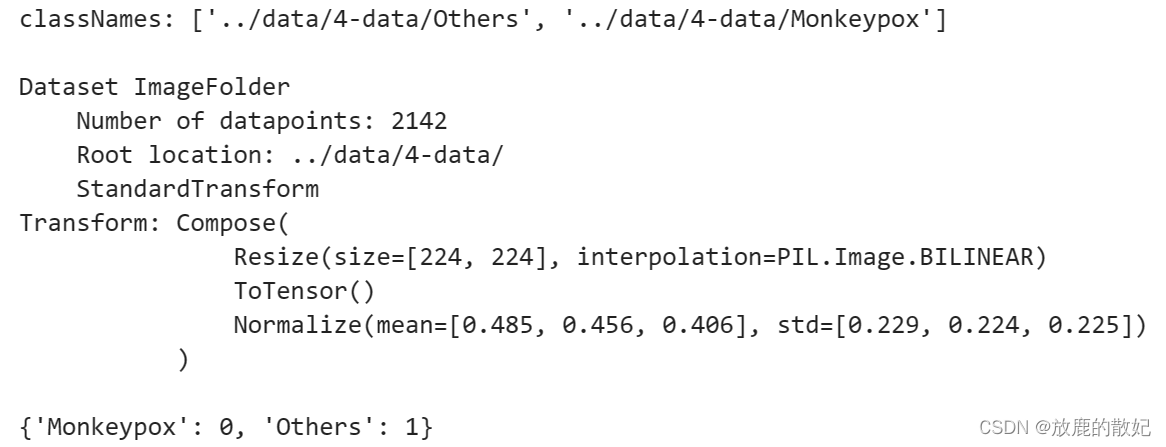
2.2.3 划分数据集
train_size = int(0.8 * len(total_data))
test_size = len(total_data) - train_size
train_dataset, test_dataset = torch.utils.data.random_split(total_data, [train_size, test_size])
print(train_dataset, test_dataset)
batch_size = 4
train_dl = torch.utils.data.DataLoader(train_dataset,
batch_size=batch_size,
shuffle=True,
num_workers=1,
pin_memory=False)
test_dl = torch.utils.data.DataLoader(test_dataset,
batch_size=batch_size,
shuffle=True,
num_workers=1,
pin_memory=False)
for X, y in test_dl:
print("Shape of X [N, C, H, W]:", X.shape)
print("Shape of y:", y.shape, y.dtype)
break结果如下所示:

2.3 Inception的实现
这里去掉了两个辅助分支,直接复现主支。
2.3.1 inception_block
定义一个名为Inception的类,继承自nn.Module。inception_block类包含了Inception V1模型的所有层和参数。
import torch
import torch.nn as nn
import torch.nn.functional as F
class inception_block(nn.Module):
def __init__(self, in_channels, ch1x1, ch3x3red, ch3x3, ch5x5red, ch5x5, pool_proj):
super(inception_block, self).__init__()
# 1x1 conv branch
self.branch1 = nn.Sequential(
nn.Conv2d(in_channels, ch1x1, kernel_size=1),
nn.BatchNorm2d(ch1x1),
nn.ReLU(inplace=True)
)
# 1x1 conv -> 3x3 conv branch
self.branch2 = nn.Sequential(
nn.Conv2d(in_channels, ch3x3red, kernel_size=1),
nn.BatchNorm2d(ch3x3red),
nn.ReLU(inplace=True),
nn.Conv2d(ch3x3red, ch3x3, kernel_size=3, padding=1),
nn.BatchNorm2d(ch3x3),
nn.ReLU(inplace=True)
)
# 1x1 conv -> 5x5 conv branch
self.branch3 = nn.Sequential(
nn.Conv2d(in_channels, ch5x5red, kernel_size=1),
nn.BatchNorm2d(ch5x5red),
nn.ReLU(inplace=True),
nn.Conv2d(ch5x5red, ch5x5, kernel_size=5, padding=2),
nn.BatchNorm2d(ch5x5),
nn.ReLU(inplace=True)
)
# 3x3 max pooling -> 1x1 conv branch
self.branch4 = nn.Sequential(
nn.MaxPool2d(kernel_size=3, stride=1, padding=1),
nn.Conv2d(in_channels, pool_proj, kernel_size=1),
nn.BatchNorm2d(pool_proj),
nn.ReLU(inplace=True)
)
def forward(self, x):
# compute forward pass through all branches
# and concatenate the outout feature maps
branch1_output = self.branch1(x)
branch2_output = self.branch2(x)
branch3_output = self.branch3(x)
branch4_output = self.branch4(x)
outputs = [branch1_output, branch2_output, branch3_output, branch4_output]
return torch.cat(outputs, 1)在__init__方法中,我们定义了四个分支,分别是:
(1) branch1:一个1x1卷积层;
(2) branch2:一个1x1卷积层+一个3x3卷积层;
(3) branch3:一个1x1卷积层+5x5卷积层;
(4) branch4:一个3x3最大池化层+一个1x1卷积层;
每个分支都包含了一些卷积层、批归一化层和激活函数。这些层都是PyTorch中的标准层,我们可以使用nn.Conv2d、nn.BatchNorm2d和nn.ReLU分别定义卷积层、批归一化层和ReLU激活函数。
在forward方法中,我们计算从输入到所有分支的前向传递,并将所有分支的特征图拼接在一起。最后,我们返回拼接后的特征图。
2.3.2 Inception v1
下面定义Inception v1模型,使用nn.ModuleList和nn.Sequential组合多个Inception模块和其他层。
class InceptionV1(nn.Module):
def __init__(self, num_classes=4):
super(InceptionV1, self).__init__()
self.conv1 = nn.Conv2d(3, 64, kernel_size=7, stride=2, padding=3)
self.maxpool1 = nn.MaxPool2d(kernel_size=3, stride=2, padding=1)
self.conv2 = nn.Conv2d(64, 64, kernel_size=1, stride=1, padding=0)
self.conv3 = nn.Conv2d(64, 192, kernel_size=3, stride=1, padding=1)
self.maxpool2 = nn.MaxPool2d(kernel_size=3, stride=2, padding=1)
self.inception3a = inception_block(192, 64, 96, 128, 16, 32, 32)
self.inception3b = inception_block(256, 128, 128, 192, 32, 96, 64)
self.maxpool3 = nn.MaxPool2d(kernel_size=3, stride=2, padding=1)
self.inception4a = inception_block(480, 192, 96, 208, 16, 48, 64)
self.inception4b = inception_block(512, 160, 112, 224, 24, 64, 64)
self.inception4c = inception_block(512, 128, 128, 256, 24, 64, 64)
self.inception4d = inception_block(512, 112, 144, 288, 32, 64, 64)
self.inception4e = inception_block(528, 256, 160, 320, 32, 128, 128)
self.maxpool4 = nn.MaxPool2d(kernel_size=3, stride=2, padding=1)
self.inception5a = inception_block(832, 256, 160, 320, 32, 128, 128)
self.inception5b = nn.Sequential(
inception_block(832, 384, 192, 384, 48, 128, 128),
nn.AvgPool2d(kernel_size=7, stride=1, padding=0),
nn.Dropout(0.4)
)
# 全连接网络层,用于分类
self.classifier = nn.Sequential(
nn.Linear(in_features=1024, out_features=1024),
nn.ReLU(),
nn.Linear(in_features=1024, out_features=num_classes),
nn.Softmax(dim=1)
)
def forward(self, x):
x = self.conv1(x)
x = F.relu(x)
x = self.maxpool1(x)
x = self.conv2(x)
x = F.relu(x)
x = self.conv3(x)
x = F.relu(x)
x = self.maxpool2(x)
x = self.inception3a(x)
x = self.inception3b(x)
x = self.maxpool3(x)
x = self.inception4a(x)
x = self.inception4b(x)
x = self.inception4c(x)
x = self.inception4d(x)
x = self.inception4e(x)
x = self.maxpool4(x)
x = self.inception5a(x)
x = self.inception5b(x)
x = torch.flatten(x, start_dim=1)
x = self.classifier(x)
return x2.3.3 输出模型结构
# 统计模型参数量以及其他指标
import torchsummary
# 调用并将模型转移到GPU中
model = InceptionV1().to(device)
# 显示网络结构
torchsummary.summary(model, (3, 224, 224))
print(model)输出如下所示
----------------------------------------------------------------
Layer (type) Output Shape Param #
================================================================
Conv2d-1 [-1, 64, 112, 112] 9,472
MaxPool2d-2 [-1, 64, 56, 56] 0
Conv2d-3 [-1, 64, 56, 56] 4,160
Conv2d-4 [-1, 192, 56, 56] 110,784
MaxPool2d-5 [-1, 192, 28, 28] 0
Conv2d-6 [-1, 64, 28, 28] 12,352
BatchNorm2d-7 [-1, 64, 28, 28] 128
ReLU-8 [-1, 64, 28, 28] 0
Conv2d-9 [-1, 96, 28, 28] 18,528
BatchNorm2d-10 [-1, 96, 28, 28] 192
ReLU-11 [-1, 96, 28, 28] 0
Conv2d-12 [-1, 128, 28, 28] 110,720
BatchNorm2d-13 [-1, 128, 28, 28] 256
ReLU-14 [-1, 128, 28, 28] 0
Conv2d-15 [-1, 16, 28, 28] 3,088
BatchNorm2d-16 [-1, 16, 28, 28] 32
ReLU-17 [-1, 16, 28, 28] 0
Conv2d-18 [-1, 32, 28, 28] 12,832
BatchNorm2d-19 [-1, 32, 28, 28] 64
ReLU-20 [-1, 32, 28, 28] 0
MaxPool2d-21 [-1, 192, 28, 28] 0
Conv2d-22 [-1, 32, 28, 28] 6,176
BatchNorm2d-23 [-1, 32, 28, 28] 64
ReLU-24 [-1, 32, 28, 28] 0
inception_block-25 [-1, 256, 28, 28] 0
Conv2d-26 [-1, 128, 28, 28] 32,896
BatchNorm2d-27 [-1, 128, 28, 28] 256
ReLU-28 [-1, 128, 28, 28] 0
Conv2d-29 [-1, 128, 28, 28] 32,896
BatchNorm2d-30 [-1, 128, 28, 28] 256
ReLU-31 [-1, 128, 28, 28] 0
Conv2d-32 [-1, 192, 28, 28] 221,376
BatchNorm2d-33 [-1, 192, 28, 28] 384
ReLU-34 [-1, 192, 28, 28] 0
Conv2d-35 [-1, 32, 28, 28] 8,224
BatchNorm2d-36 [-1, 32, 28, 28] 64
ReLU-37 [-1, 32, 28, 28] 0
Conv2d-38 [-1, 96, 28, 28] 76,896
BatchNorm2d-39 [-1, 96, 28, 28] 192
ReLU-40 [-1, 96, 28, 28] 0
MaxPool2d-41 [-1, 256, 28, 28] 0
Conv2d-42 [-1, 64, 28, 28] 16,448
BatchNorm2d-43 [-1, 64, 28, 28] 128
ReLU-44 [-1, 64, 28, 28] 0
inception_block-45 [-1, 480, 28, 28] 0
MaxPool2d-46 [-1, 480, 14, 14] 0
Conv2d-47 [-1, 192, 14, 14] 92,352
BatchNorm2d-48 [-1, 192, 14, 14] 384
ReLU-49 [-1, 192, 14, 14] 0
Conv2d-50 [-1, 96, 14, 14] 46,176
BatchNorm2d-51 [-1, 96, 14, 14] 192
ReLU-52 [-1, 96, 14, 14] 0
Conv2d-53 [-1, 208, 14, 14] 179,920
BatchNorm2d-54 [-1, 208, 14, 14] 416
ReLU-55 [-1, 208, 14, 14] 0
Conv2d-56 [-1, 16, 14, 14] 7,696
BatchNorm2d-57 [-1, 16, 14, 14] 32
ReLU-58 [-1, 16, 14, 14] 0
Conv2d-59 [-1, 48, 14, 14] 19,248
BatchNorm2d-60 [-1, 48, 14, 14] 96
ReLU-61 [-1, 48, 14, 14] 0
MaxPool2d-62 [-1, 480, 14, 14] 0
Conv2d-63 [-1, 64, 14, 14] 30,784
BatchNorm2d-64 [-1, 64, 14, 14] 128
ReLU-65 [-1, 64, 14, 14] 0
inception_block-66 [-1, 512, 14, 14] 0
Conv2d-67 [-1, 160, 14, 14] 82,080
BatchNorm2d-68 [-1, 160, 14, 14] 320
ReLU-69 [-1, 160, 14, 14] 0
Conv2d-70 [-1, 112, 14, 14] 57,456
BatchNorm2d-71 [-1, 112, 14, 14] 224
ReLU-72 [-1, 112, 14, 14] 0
Conv2d-73 [-1, 224, 14, 14] 226,016
BatchNorm2d-74 [-1, 224, 14, 14] 448
ReLU-75 [-1, 224, 14, 14] 0
Conv2d-76 [-1, 24, 14, 14] 12,312
BatchNorm2d-77 [-1, 24, 14, 14] 48
ReLU-78 [-1, 24, 14, 14] 0
Conv2d-79 [-1, 64, 14, 14] 38,464
BatchNorm2d-80 [-1, 64, 14, 14] 128
ReLU-81 [-1, 64, 14, 14] 0
MaxPool2d-82 [-1, 512, 14, 14] 0
Conv2d-83 [-1, 64, 14, 14] 32,832
BatchNorm2d-84 [-1, 64, 14, 14] 128
ReLU-85 [-1, 64, 14, 14] 0
inception_block-86 [-1, 512, 14, 14] 0
Conv2d-87 [-1, 128, 14, 14] 65,664
BatchNorm2d-88 [-1, 128, 14, 14] 256
ReLU-89 [-1, 128, 14, 14] 0
Conv2d-90 [-1, 128, 14, 14] 65,664
BatchNorm2d-91 [-1, 128, 14, 14] 256
ReLU-92 [-1, 128, 14, 14] 0
Conv2d-93 [-1, 256, 14, 14] 295,168
BatchNorm2d-94 [-1, 256, 14, 14] 512
ReLU-95 [-1, 256, 14, 14] 0
Conv2d-96 [-1, 24, 14, 14] 12,312
BatchNorm2d-97 [-1, 24, 14, 14] 48
ReLU-98 [-1, 24, 14, 14] 0
Conv2d-99 [-1, 64, 14, 14] 38,464
BatchNorm2d-100 [-1, 64, 14, 14] 128
ReLU-101 [-1, 64, 14, 14] 0
MaxPool2d-102 [-1, 512, 14, 14] 0
Conv2d-103 [-1, 64, 14, 14] 32,832
BatchNorm2d-104 [-1, 64, 14, 14] 128
ReLU-105 [-1, 64, 14, 14] 0
inception_block-106 [-1, 512, 14, 14] 0
Conv2d-107 [-1, 112, 14, 14] 57,456
BatchNorm2d-108 [-1, 112, 14, 14] 224
ReLU-109 [-1, 112, 14, 14] 0
Conv2d-110 [-1, 144, 14, 14] 73,872
BatchNorm2d-111 [-1, 144, 14, 14] 288
ReLU-112 [-1, 144, 14, 14] 0
Conv2d-113 [-1, 288, 14, 14] 373,536
BatchNorm2d-114 [-1, 288, 14, 14] 576
ReLU-115 [-1, 288, 14, 14] 0
Conv2d-116 [-1, 32, 14, 14] 16,416
BatchNorm2d-117 [-1, 32, 14, 14] 64
ReLU-118 [-1, 32, 14, 14] 0
Conv2d-119 [-1, 64, 14, 14] 51,264
BatchNorm2d-120 [-1, 64, 14, 14] 128
ReLU-121 [-1, 64, 14, 14] 0
MaxPool2d-122 [-1, 512, 14, 14] 0
Conv2d-123 [-1, 64, 14, 14] 32,832
BatchNorm2d-124 [-1, 64, 14, 14] 128
ReLU-125 [-1, 64, 14, 14] 0
inception_block-126 [-1, 528, 14, 14] 0
Conv2d-127 [-1, 256, 14, 14] 135,424
BatchNorm2d-128 [-1, 256, 14, 14] 512
ReLU-129 [-1, 256, 14, 14] 0
Conv2d-130 [-1, 160, 14, 14] 84,640
BatchNorm2d-131 [-1, 160, 14, 14] 320
ReLU-132 [-1, 160, 14, 14] 0
Conv2d-133 [-1, 320, 14, 14] 461,120
BatchNorm2d-134 [-1, 320, 14, 14] 640
ReLU-135 [-1, 320, 14, 14] 0
Conv2d-136 [-1, 32, 14, 14] 16,928
BatchNorm2d-137 [-1, 32, 14, 14] 64
ReLU-138 [-1, 32, 14, 14] 0
Conv2d-139 [-1, 128, 14, 14] 102,528
BatchNorm2d-140 [-1, 128, 14, 14] 256
ReLU-141 [-1, 128, 14, 14] 0
MaxPool2d-142 [-1, 528, 14, 14] 0
Conv2d-143 [-1, 128, 14, 14] 67,712
BatchNorm2d-144 [-1, 128, 14, 14] 256
ReLU-145 [-1, 128, 14, 14] 0
inception_block-146 [-1, 832, 14, 14] 0
MaxPool2d-147 [-1, 832, 7, 7] 0
Conv2d-148 [-1, 256, 7, 7] 213,248
BatchNorm2d-149 [-1, 256, 7, 7] 512
ReLU-150 [-1, 256, 7, 7] 0
Conv2d-151 [-1, 160, 7, 7] 133,280
BatchNorm2d-152 [-1, 160, 7, 7] 320
ReLU-153 [-1, 160, 7, 7] 0
Conv2d-154 [-1, 320, 7, 7] 461,120
BatchNorm2d-155 [-1, 320, 7, 7] 640
ReLU-156 [-1, 320, 7, 7] 0
Conv2d-157 [-1, 32, 7, 7] 26,656
BatchNorm2d-158 [-1, 32, 7, 7] 64
ReLU-159 [-1, 32, 7, 7] 0
Conv2d-160 [-1, 128, 7, 7] 102,528
BatchNorm2d-161 [-1, 128, 7, 7] 256
ReLU-162 [-1, 128, 7, 7] 0
MaxPool2d-163 [-1, 832, 7, 7] 0
Conv2d-164 [-1, 128, 7, 7] 106,624
BatchNorm2d-165 [-1, 128, 7, 7] 256
ReLU-166 [-1, 128, 7, 7] 0
inception_block-167 [-1, 832, 7, 7] 0
Conv2d-168 [-1, 384, 7, 7] 319,872
BatchNorm2d-169 [-1, 384, 7, 7] 768
ReLU-170 [-1, 384, 7, 7] 0
Conv2d-171 [-1, 192, 7, 7] 159,936
BatchNorm2d-172 [-1, 192, 7, 7] 384
ReLU-173 [-1, 192, 7, 7] 0
Conv2d-174 [-1, 384, 7, 7] 663,936
BatchNorm2d-175 [-1, 384, 7, 7] 768
ReLU-176 [-1, 384, 7, 7] 0
Conv2d-177 [-1, 48, 7, 7] 39,984
BatchNorm2d-178 [-1, 48, 7, 7] 96
ReLU-179 [-1, 48, 7, 7] 0
Conv2d-180 [-1, 128, 7, 7] 153,728
BatchNorm2d-181 [-1, 128, 7, 7] 256
ReLU-182 [-1, 128, 7, 7] 0
MaxPool2d-183 [-1, 832, 7, 7] 0
Conv2d-184 [-1, 128, 7, 7] 106,624
BatchNorm2d-185 [-1, 128, 7, 7] 256
ReLU-186 [-1, 128, 7, 7] 0
inception_block-187 [-1, 1024, 7, 7] 0
AvgPool2d-188 [-1, 1024, 1, 1] 0
Dropout-189 [-1, 1024, 1, 1] 0
Linear-190 [-1, 1024] 1,049,600
ReLU-191 [-1, 1024] 0
Linear-192 [-1, 4] 4,100
Softmax-193 [-1, 4] 0
================================================================
Total params: 7,041,172
Trainable params: 7,041,172
Non-trainable params: 0
----------------------------------------------------------------
Input size (MB): 0.57
Forward/backward pass size (MB): 69.61
Params size (MB): 26.86
Estimated Total Size (MB): 97.05
----------------------------------------------------------------
InceptionV1(
(conv1): Conv2d(3, 64, kernel_size=(7, 7), stride=(2, 2), padding=(3, 3))
(maxpool1): MaxPool2d(kernel_size=3, stride=2, padding=1, dilation=1, ceil_mode=False)
(conv2): Conv2d(64, 64, kernel_size=(1, 1), stride=(1, 1))
(conv3): Conv2d(64, 192, kernel_size=(3, 3), stride=(1, 1), padding=(1, 1))
(maxpool2): MaxPool2d(kernel_size=3, stride=2, padding=1, dilation=1, ceil_mode=False)
(inception3a): inception_block(
(branch1): Sequential(
(0): Conv2d(192, 64, kernel_size=(1, 1), stride=(1, 1))
(1): BatchNorm2d(64, eps=1e-05, momentum=0.1, affine=True, track_running_stats=True)
(2): ReLU(inplace=True)
)
(branch2): Sequential(
(0): Conv2d(192, 96, kernel_size=(1, 1), stride=(1, 1))
(1): BatchNorm2d(96, eps=1e-05, momentum=0.1, affine=True, track_running_stats=True)
(2): ReLU(inplace=True)
(3): Conv2d(96, 128, kernel_size=(3, 3), stride=(1, 1), padding=(1, 1))
(4): BatchNorm2d(128, eps=1e-05, momentum=0.1, affine=True, track_running_stats=True)
(5): ReLU(inplace=True)
)
(branch3): Sequential(
(0): Conv2d(192, 16, kernel_size=(1, 1), stride=(1, 1))
(1): BatchNorm2d(16, eps=1e-05, momentum=0.1, affine=True, track_running_stats=True)
(2): ReLU(inplace=True)
(3): Conv2d(16, 32, kernel_size=(5, 5), stride=(1, 1), padding=(2, 2))
(4): BatchNorm2d(32, eps=1e-05, momentum=0.1, affine=True, track_running_stats=True)
(5): ReLU(inplace=True)
)
(branch4): Sequential(
(0): MaxPool2d(kernel_size=3, stride=1, padding=1, dilation=1, ceil_mode=False)
(1): Conv2d(192, 32, kernel_size=(1, 1), stride=(1, 1))
(2): BatchNorm2d(32, eps=1e-05, momentum=0.1, affine=True, track_running_stats=True)
(3): ReLU(inplace=True)
)
)
(inception3b): inception_block(
(branch1): Sequential(
(0): Conv2d(256, 128, kernel_size=(1, 1), stride=(1, 1))
(1): BatchNorm2d(128, eps=1e-05, momentum=0.1, affine=True, track_running_stats=True)
(2): ReLU(inplace=True)
)
(branch2): Sequential(
(0): Conv2d(256, 128, kernel_size=(1, 1), stride=(1, 1))
(1): BatchNorm2d(128, eps=1e-05, momentum=0.1, affine=True, track_running_stats=True)
(2): ReLU(inplace=True)
(3): Conv2d(128, 192, kernel_size=(3, 3), stride=(1, 1), padding=(1, 1))
(4): BatchNorm2d(192, eps=1e-05, momentum=0.1, affine=True, track_running_stats=True)
(5): ReLU(inplace=True)
)
(branch3): Sequential(
(0): Conv2d(256, 32, kernel_size=(1, 1), stride=(1, 1))
(1): BatchNorm2d(32, eps=1e-05, momentum=0.1, affine=True, track_running_stats=True)
(2): ReLU(inplace=True)
(3): Conv2d(32, 96, kernel_size=(5, 5), stride=(1, 1), padding=(2, 2))
(4): BatchNorm2d(96, eps=1e-05, momentum=0.1, affine=True, track_running_stats=True)
(5): ReLU(inplace=True)
)
(branch4): Sequential(
(0): MaxPool2d(kernel_size=3, stride=1, padding=1, dilation=1, ceil_mode=False)
(1): Conv2d(256, 64, kernel_size=(1, 1), stride=(1, 1))
(2): BatchNorm2d(64, eps=1e-05, momentum=0.1, affine=True, track_running_stats=True)
(3): ReLU(inplace=True)
)
)
(maxpool3): MaxPool2d(kernel_size=3, stride=2, padding=1, dilation=1, ceil_mode=False)
(inception4a): inception_block(
(branch1): Sequential(
(0): Conv2d(480, 192, kernel_size=(1, 1), stride=(1, 1))
(1): BatchNorm2d(192, eps=1e-05, momentum=0.1, affine=True, track_running_stats=True)
(2): ReLU(inplace=True)
)
(branch2): Sequential(
(0): Conv2d(480, 96, kernel_size=(1, 1), stride=(1, 1))
(1): BatchNorm2d(96, eps=1e-05, momentum=0.1, affine=True, track_running_stats=True)
(2): ReLU(inplace=True)
(3): Conv2d(96, 208, kernel_size=(3, 3), stride=(1, 1), padding=(1, 1))
(4): BatchNorm2d(208, eps=1e-05, momentum=0.1, affine=True, track_running_stats=True)
(5): ReLU(inplace=True)
)
(branch3): Sequential(
(0): Conv2d(480, 16, kernel_size=(1, 1), stride=(1, 1))
(1): BatchNorm2d(16, eps=1e-05, momentum=0.1, affine=True, track_running_stats=True)
(2): ReLU(inplace=True)
(3): Conv2d(16, 48, kernel_size=(5, 5), stride=(1, 1), padding=(2, 2))
(4): BatchNorm2d(48, eps=1e-05, momentum=0.1, affine=True, track_running_stats=True)
(5): ReLU(inplace=True)
)
(branch4): Sequential(
(0): MaxPool2d(kernel_size=3, stride=1, padding=1, dilation=1, ceil_mode=False)
(1): Conv2d(480, 64, kernel_size=(1, 1), stride=(1, 1))
(2): BatchNorm2d(64, eps=1e-05, momentum=0.1, affine=True, track_running_stats=True)
(3): ReLU(inplace=True)
)
)
(inception4b): inception_block(
(branch1): Sequential(
(0): Conv2d(512, 160, kernel_size=(1, 1), stride=(1, 1))
(1): BatchNorm2d(160, eps=1e-05, momentum=0.1, affine=True, track_running_stats=True)
(2): ReLU(inplace=True)
)
(branch2): Sequential(
(0): Conv2d(512, 112, kernel_size=(1, 1), stride=(1, 1))
(1): BatchNorm2d(112, eps=1e-05, momentum=0.1, affine=True, track_running_stats=True)
(2): ReLU(inplace=True)
(3): Conv2d(112, 224, kernel_size=(3, 3), stride=(1, 1), padding=(1, 1))
(4): BatchNorm2d(224, eps=1e-05, momentum=0.1, affine=True, track_running_stats=True)
(5): ReLU(inplace=True)
)
(branch3): Sequential(
(0): Conv2d(512, 24, kernel_size=(1, 1), stride=(1, 1))
(1): BatchNorm2d(24, eps=1e-05, momentum=0.1, affine=True, track_running_stats=True)
(2): ReLU(inplace=True)
(3): Conv2d(24, 64, kernel_size=(5, 5), stride=(1, 1), padding=(2, 2))
(4): BatchNorm2d(64, eps=1e-05, momentum=0.1, affine=True, track_running_stats=True)
(5): ReLU(inplace=True)
)
(branch4): Sequential(
(0): MaxPool2d(kernel_size=3, stride=1, padding=1, dilation=1, ceil_mode=False)
(1): Conv2d(512, 64, kernel_size=(1, 1), stride=(1, 1))
(2): BatchNorm2d(64, eps=1e-05, momentum=0.1, affine=True, track_running_stats=True)
(3): ReLU(inplace=True)
)
)
(inception4c): inception_block(
(branch1): Sequential(
(0): Conv2d(512, 128, kernel_size=(1, 1), stride=(1, 1))
(1): BatchNorm2d(128, eps=1e-05, momentum=0.1, affine=True, track_running_stats=True)
(2): ReLU(inplace=True)
)
(branch2): Sequential(
(0): Conv2d(512, 128, kernel_size=(1, 1), stride=(1, 1))
(1): BatchNorm2d(128, eps=1e-05, momentum=0.1, affine=True, track_running_stats=True)
(2): ReLU(inplace=True)
(3): Conv2d(128, 256, kernel_size=(3, 3), stride=(1, 1), padding=(1, 1))
(4): BatchNorm2d(256, eps=1e-05, momentum=0.1, affine=True, track_running_stats=True)
(5): ReLU(inplace=True)
)
(branch3): Sequential(
(0): Conv2d(512, 24, kernel_size=(1, 1), stride=(1, 1))
(1): BatchNorm2d(24, eps=1e-05, momentum=0.1, affine=True, track_running_stats=True)
(2): ReLU(inplace=True)
(3): Conv2d(24, 64, kernel_size=(5, 5), stride=(1, 1), padding=(2, 2))
(4): BatchNorm2d(64, eps=1e-05, momentum=0.1, affine=True, track_running_stats=True)
(5): ReLU(inplace=True)
)
(branch4): Sequential(
(0): MaxPool2d(kernel_size=3, stride=1, padding=1, dilation=1, ceil_mode=False)
(1): Conv2d(512, 64, kernel_size=(1, 1), stride=(1, 1))
(2): BatchNorm2d(64, eps=1e-05, momentum=0.1, affine=True, track_running_stats=True)
(3): ReLU(inplace=True)
)
)
(inception4d): inception_block(
(branch1): Sequential(
(0): Conv2d(512, 112, kernel_size=(1, 1), stride=(1, 1))
(1): BatchNorm2d(112, eps=1e-05, momentum=0.1, affine=True, track_running_stats=True)
(2): ReLU(inplace=True)
)
(branch2): Sequential(
(0): Conv2d(512, 144, kernel_size=(1, 1), stride=(1, 1))
(1): BatchNorm2d(144, eps=1e-05, momentum=0.1, affine=True, track_running_stats=True)
(2): ReLU(inplace=True)
(3): Conv2d(144, 288, kernel_size=(3, 3), stride=(1, 1), padding=(1, 1))
(4): BatchNorm2d(288, eps=1e-05, momentum=0.1, affine=True, track_running_stats=True)
(5): ReLU(inplace=True)
)
(branch3): Sequential(
(0): Conv2d(512, 32, kernel_size=(1, 1), stride=(1, 1))
(1): BatchNorm2d(32, eps=1e-05, momentum=0.1, affine=True, track_running_stats=True)
(2): ReLU(inplace=True)
(3): Conv2d(32, 64, kernel_size=(5, 5), stride=(1, 1), padding=(2, 2))
(4): BatchNorm2d(64, eps=1e-05, momentum=0.1, affine=True, track_running_stats=True)
(5): ReLU(inplace=True)
)
(branch4): Sequential(
(0): MaxPool2d(kernel_size=3, stride=1, padding=1, dilation=1, ceil_mode=False)
(1): Conv2d(512, 64, kernel_size=(1, 1), stride=(1, 1))
(2): BatchNorm2d(64, eps=1e-05, momentum=0.1, affine=True, track_running_stats=True)
(3): ReLU(inplace=True)
)
)
(inception4e): inception_block(
(branch1): Sequential(
(0): Conv2d(528, 256, kernel_size=(1, 1), stride=(1, 1))
(1): BatchNorm2d(256, eps=1e-05, momentum=0.1, affine=True, track_running_stats=True)
(2): ReLU(inplace=True)
)
(branch2): Sequential(
(0): Conv2d(528, 160, kernel_size=(1, 1), stride=(1, 1))
(1): BatchNorm2d(160, eps=1e-05, momentum=0.1, affine=True, track_running_stats=True)
(2): ReLU(inplace=True)
(3): Conv2d(160, 320, kernel_size=(3, 3), stride=(1, 1), padding=(1, 1))
(4): BatchNorm2d(320, eps=1e-05, momentum=0.1, affine=True, track_running_stats=True)
(5): ReLU(inplace=True)
)
(branch3): Sequential(
(0): Conv2d(528, 32, kernel_size=(1, 1), stride=(1, 1))
(1): BatchNorm2d(32, eps=1e-05, momentum=0.1, affine=True, track_running_stats=True)
(2): ReLU(inplace=True)
(3): Conv2d(32, 128, kernel_size=(5, 5), stride=(1, 1), padding=(2, 2))
(4): BatchNorm2d(128, eps=1e-05, momentum=0.1, affine=True, track_running_stats=True)
(5): ReLU(inplace=True)
)
(branch4): Sequential(
(0): MaxPool2d(kernel_size=3, stride=1, padding=1, dilation=1, ceil_mode=False)
(1): Conv2d(528, 128, kernel_size=(1, 1), stride=(1, 1))
(2): BatchNorm2d(128, eps=1e-05, momentum=0.1, affine=True, track_running_stats=True)
(3): ReLU(inplace=True)
)
)
(maxpool4): MaxPool2d(kernel_size=3, stride=2, padding=1, dilation=1, ceil_mode=False)
(inception5a): inception_block(
(branch1): Sequential(
(0): Conv2d(832, 256, kernel_size=(1, 1), stride=(1, 1))
(1): BatchNorm2d(256, eps=1e-05, momentum=0.1, affine=True, track_running_stats=True)
(2): ReLU(inplace=True)
)
(branch2): Sequential(
(0): Conv2d(832, 160, kernel_size=(1, 1), stride=(1, 1))
(1): BatchNorm2d(160, eps=1e-05, momentum=0.1, affine=True, track_running_stats=True)
(2): ReLU(inplace=True)
(3): Conv2d(160, 320, kernel_size=(3, 3), stride=(1, 1), padding=(1, 1))
(4): BatchNorm2d(320, eps=1e-05, momentum=0.1, affine=True, track_running_stats=True)
(5): ReLU(inplace=True)
)
(branch3): Sequential(
(0): Conv2d(832, 32, kernel_size=(1, 1), stride=(1, 1))
(1): BatchNorm2d(32, eps=1e-05, momentum=0.1, affine=True, track_running_stats=True)
(2): ReLU(inplace=True)
(3): Conv2d(32, 128, kernel_size=(5, 5), stride=(1, 1), padding=(2, 2))
(4): BatchNorm2d(128, eps=1e-05, momentum=0.1, affine=True, track_running_stats=True)
(5): ReLU(inplace=True)
)
(branch4): Sequential(
(0): MaxPool2d(kernel_size=3, stride=1, padding=1, dilation=1, ceil_mode=False)
(1): Conv2d(832, 128, kernel_size=(1, 1), stride=(1, 1))
(2): BatchNorm2d(128, eps=1e-05, momentum=0.1, affine=True, track_running_stats=True)
(3): ReLU(inplace=True)
)
)
(inception5b): Sequential(
(0): inception_block(
(branch1): Sequential(
(0): Conv2d(832, 384, kernel_size=(1, 1), stride=(1, 1))
(1): BatchNorm2d(384, eps=1e-05, momentum=0.1, affine=True, track_running_stats=True)
(2): ReLU(inplace=True)
)
(branch2): Sequential(
(0): Conv2d(832, 192, kernel_size=(1, 1), stride=(1, 1))
(1): BatchNorm2d(192, eps=1e-05, momentum=0.1, affine=True, track_running_stats=True)
(2): ReLU(inplace=True)
(3): Conv2d(192, 384, kernel_size=(3, 3), stride=(1, 1), padding=(1, 1))
(4): BatchNorm2d(384, eps=1e-05, momentum=0.1, affine=True, track_running_stats=True)
(5): ReLU(inplace=True)
)
(branch3): Sequential(
(0): Conv2d(832, 48, kernel_size=(1, 1), stride=(1, 1))
(1): BatchNorm2d(48, eps=1e-05, momentum=0.1, affine=True, track_running_stats=True)
(2): ReLU(inplace=True)
(3): Conv2d(48, 128, kernel_size=(5, 5), stride=(1, 1), padding=(2, 2))
(4): BatchNorm2d(128, eps=1e-05, momentum=0.1, affine=True, track_running_stats=True)
(5): ReLU(inplace=True)
)
(branch4): Sequential(
(0): MaxPool2d(kernel_size=3, stride=1, padding=1, dilation=1, ceil_mode=False)
(1): Conv2d(832, 128, kernel_size=(1, 1), stride=(1, 1))
(2): BatchNorm2d(128, eps=1e-05, momentum=0.1, affine=True, track_running_stats=True)
(3): ReLU(inplace=True)
)
)
(1): AvgPool2d(kernel_size=7, stride=1, padding=0)
(2): Dropout(p=0.4, inplace=False)
)
(classifier): Sequential(
(0): Linear(in_features=1024, out_features=1024, bias=True)
(1): ReLU()
(2): Linear(in_features=1024, out_features=4, bias=True)
(3): Softmax(dim=1)
)
)2.4 训练模型
2.4.1 编写训练函数
# 训练循环
def train(dataloader, model, loss_fn, optimizer):
size = len(dataloader.dataset) # 训练集的大小
num_batches = len(dataloader) # 批次数目, (size/batch_size,向上取整)
train_loss, train_acc = 0, 0 # 初始化训练损失和正确率
for X, y in dataloader: # 获取图片及其标签
X, y = X.to(device), y.to(device)
# 计算预测误差
pred = model(X) # 网络输出
loss = loss_fn(pred, y) # 计算网络输出pred和真实值y之间的差距,y为真实值,计算二者差值即为损失
# 反向传播
optimizer.zero_grad() # grad属性归零
loss.backward() # 反向传播
optimizer.step() # 每一步自动更新
# 记录acc与loss
train_acc += (pred.argmax(1) == y).type(torch.float).sum().item()
train_loss += loss.item()
train_acc /= size
train_loss /= num_batches
return train_acc, train_loss2.4.2 编写测试函数
def test(dataloader, model, loss_fn):
size = len(dataloader.dataset) # 训练集的大小
num_batches = len(dataloader) # 批次数目, (size/batch_size,向上取整)
test_loss, test_acc = 0, 0 # 初始化测试损失和正确率
# 当不进行训练时,停止梯度更新,节省计算内存消耗
# with torch.no_grad():
for imgs, target in dataloader: # 获取图片及其标签
with torch.no_grad():
imgs, target = imgs.to(device), target.to(device)
# 计算误差
tartget_pred = model(imgs) # 网络输出
loss = loss_fn(tartget_pred, target) # 计算网络输出和真实值之间的差距,targets为真实值,计算二者差值即为损失
# 记录acc与loss
test_loss += loss.item()
test_acc += (tartget_pred.argmax(1) == target).type(torch.float).sum().item()
test_acc /= size
test_loss /= num_batches
return test_acc, test_loss2.4.3 正式训练
import copy
optimizer = torch.optim.Adam(model.parameters(), lr = 1e-4)
loss_fn = nn.CrossEntropyLoss() #创建损失函数
epochs = 40
train_loss = []
train_acc = []
test_loss = []
test_acc = []
best_acc = 0 #设置一个最佳准确率,作为最佳模型的判别指标
if hasattr(torch.cuda, 'empty_cache'):
torch.cuda.empty_cache()
for epoch in range(epochs):
model.train()
epoch_train_acc, epoch_train_loss = train(train_dl, model, loss_fn, optimizer)
#scheduler.step() #更新学习率(调用官方动态学习率接口时使用)
model.eval()
epoch_test_acc, epoch_test_loss = test(test_dl, model, loss_fn)
#保存最佳模型到best_model
if epoch_test_acc > best_acc:
best_acc = epoch_test_acc
best_model = copy.deepcopy(model)
train_acc.append(epoch_train_acc)
train_loss.append(epoch_train_loss)
test_acc.append(epoch_test_acc)
test_loss.append(epoch_test_loss)
#获取当前的学习率
lr = optimizer.state_dict()['param_groups'][0]['lr']
template = ('Epoch: {:2d}. Train_acc: {:.1f}%, Train_loss: {:.3f}, Test_acc:{:.1f}%, Test_loss:{:.3f}, Lr: {:.2E}')
print(template.format(epoch+1, epoch_train_acc*100, epoch_train_loss, epoch_test_acc*100, epoch_test_loss, lr))
PATH = './J7_best_model.pth'
torch.save(model.state_dict(), PATH)
print('Done')输出结果如下所示:
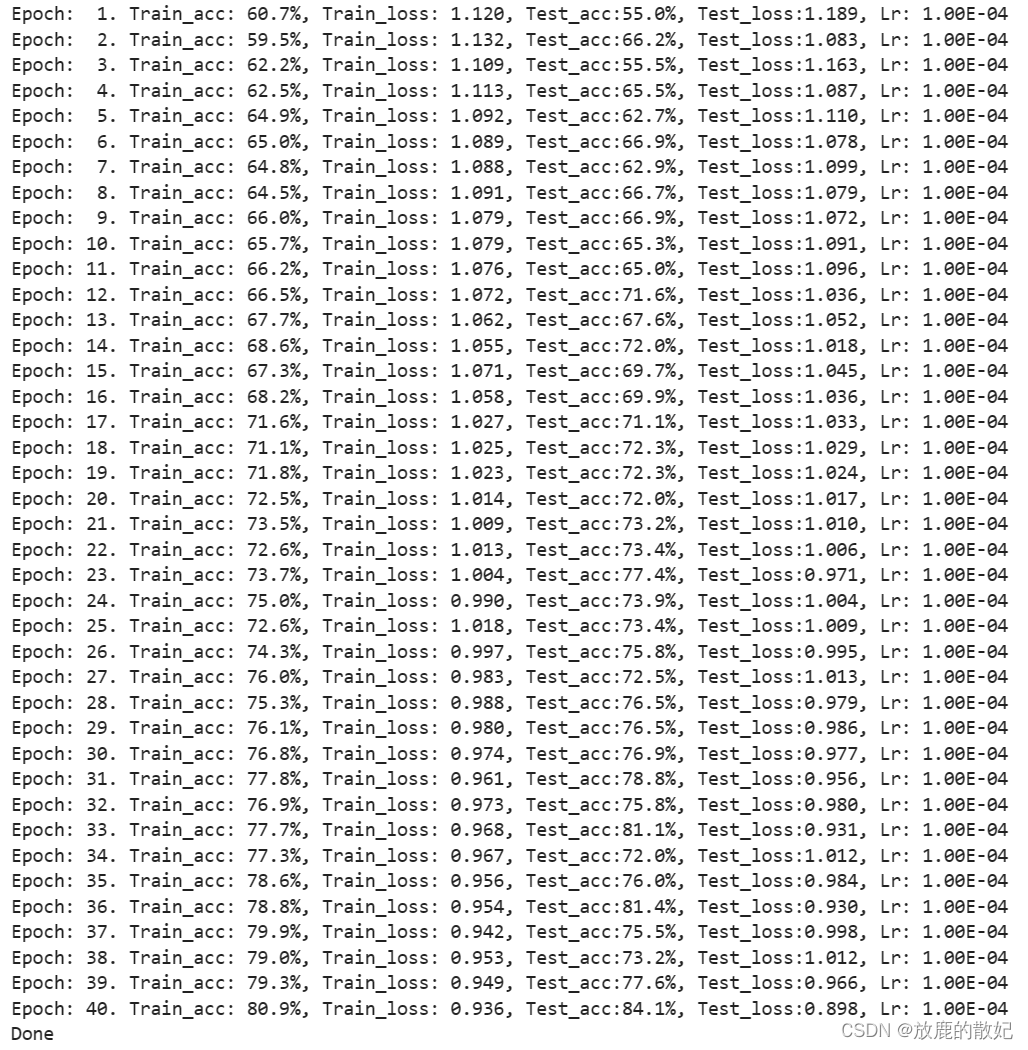
2.5 结果可视化
import matplotlib.pyplot as plt
#隐藏警告
import warnings
warnings.filterwarnings("ignore") #忽略警告信息
plt.rcParams['font.sans-serif'] = ['SimHei'] # 用来正常显示中文标签
plt.rcParams['axes.unicode_minus'] = False # 用来正常显示负号
plt.rcParams['figure.dpi'] = 100 #分辨率
epochs_range = range(epochs)
plt.figure(figsize=(12, 3))
plt.subplot(1, 2, 1)
plt.plot(epochs_range, train_acc, label='Training Accuracy')
plt.plot(epochs_range, test_acc, label='Test Accuracy')
plt.legend(loc='lower right')
plt.title('Training and Validation Accuracy')
plt.subplot(1, 2, 2)
plt.plot(epochs_range, train_loss, label='Training Loss')
plt.plot(epochs_range, test_loss, label='Test Loss')
plt.legend(loc='upper right')
plt.title('Training and Validation Loss')
plt.show()输出结果显示如下:
 3 总结
3 总结
大部分流行的CNN是将网络的卷积层堆叠的越来越多,网络越来越深,同时channel越来越宽,网络越来越宽,以此来希望提取更高层的特征,从而得到更好的性能。但单纯的网络堆叠和加宽会带来副作用,包括梯度爆炸和数据量剧增而导致的训练困难的问题等。而Inception的提出,改善了此种现象。
Inception是用多路分支来并行采用不同的卷积核大小,来提取不同大小感受野所代表的特征。这种分支结构,将单路改变为多路,并行计算,使得网络运行速度更快。而不同大小的卷积核,则代表在不同大小感受野的范围内提取的特征,使得网络可以同时“看到”该位置不同范围的特征,通过后续的concate操作,将不同大小感受野的特征融合起来,综合该位置不同范围的特征。其解读思想更接近于人类的解读方式。
同时,为减少参数量,在分支中,使用1x1卷积将channel维度进行降维,提取特征后再次使用1x1卷积进行channel维度的回升,看似繁琐,却将参数量大大降低。而且,这样的操作,也在无形中增加了网络的深度,提取了更高维的特征。这种降维操作类似于将一个大矩阵转化为一个小矩阵,转化的过程中会提取大矩阵的“精华”,去除冗余信息。而升维操作则类似于将小矩阵又转化为原始大小的大矩阵,方便不同分支的特征融合。
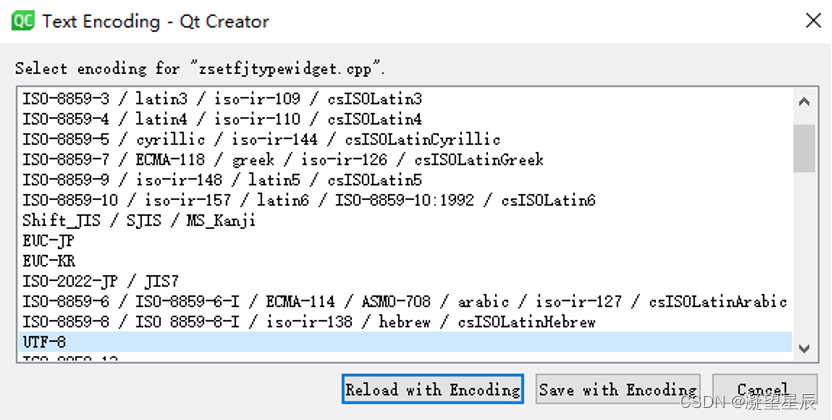


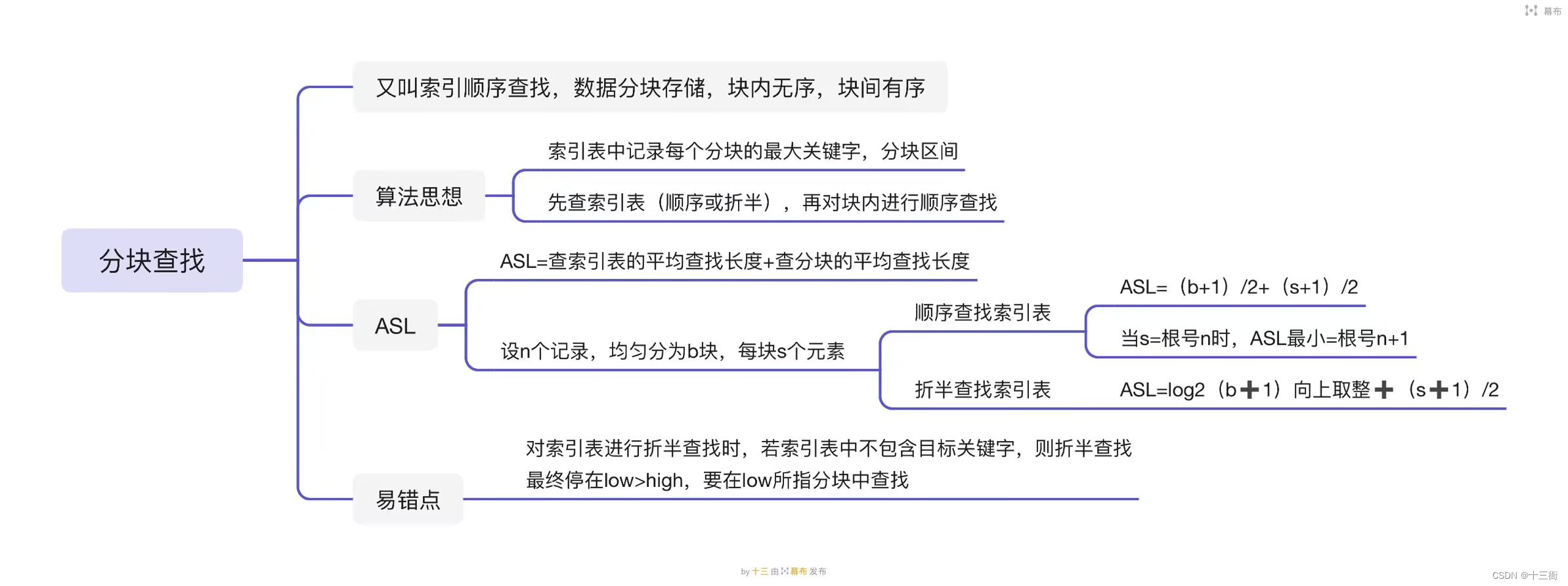

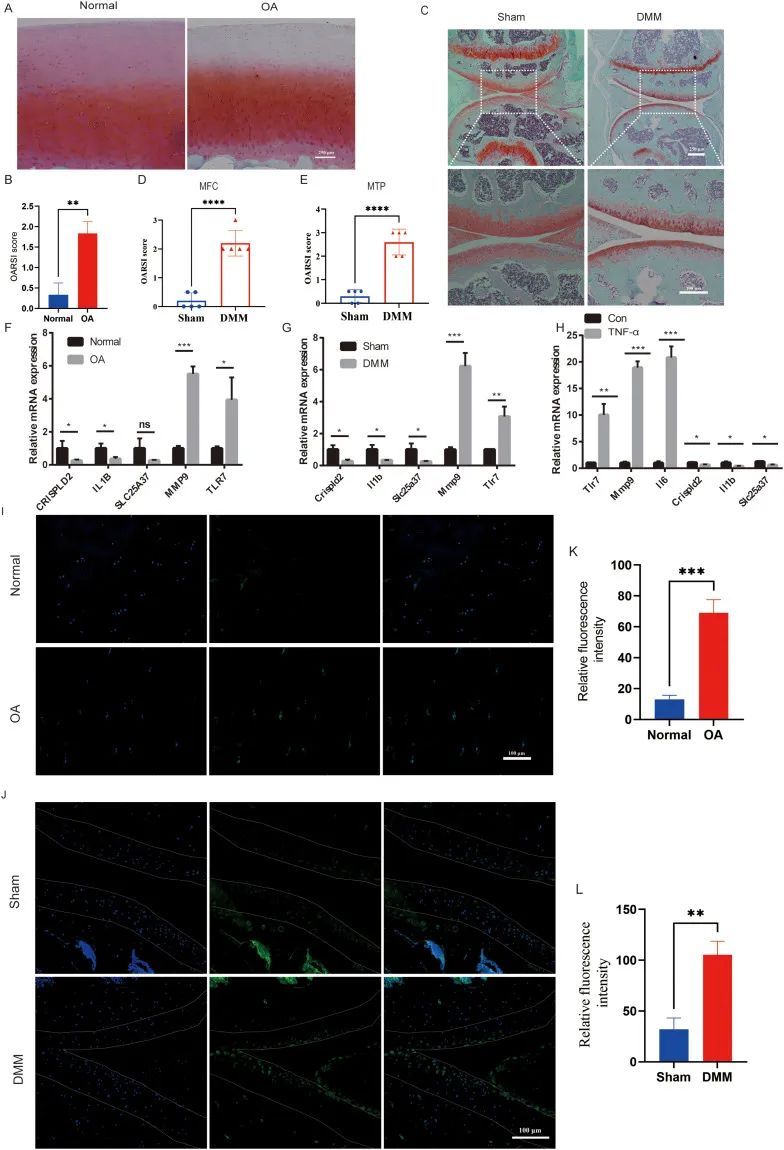
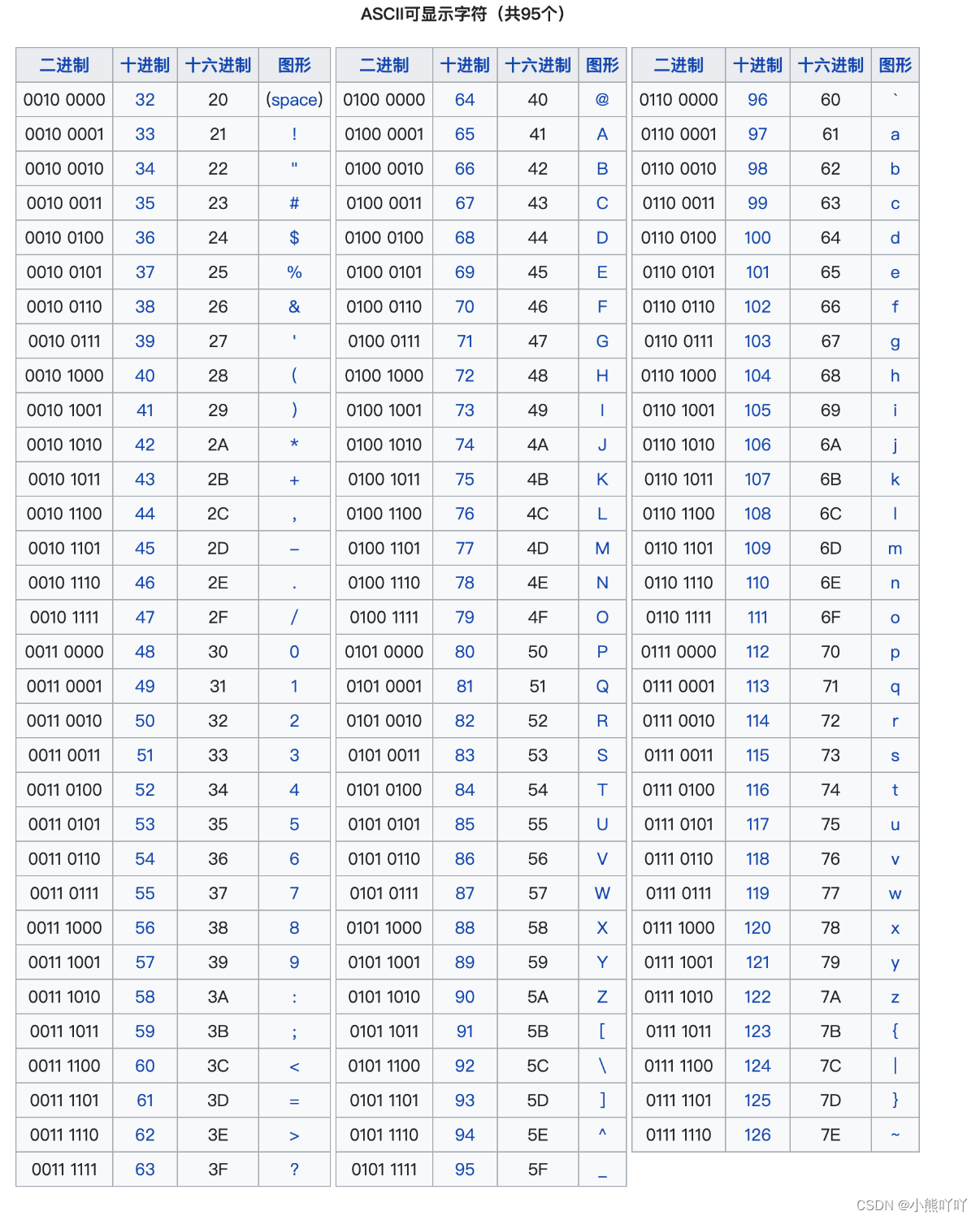

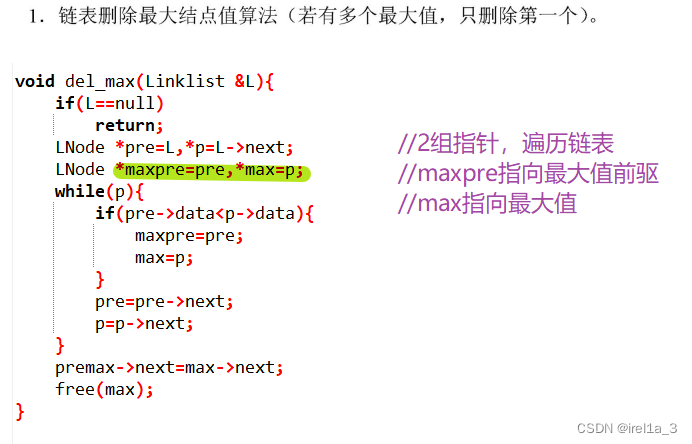

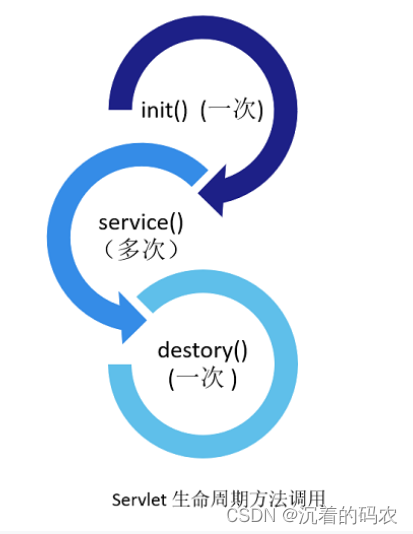

](https://img-blog.csdnimg.cn/8cbbb88757914a878b64b40005140de6.jpg)




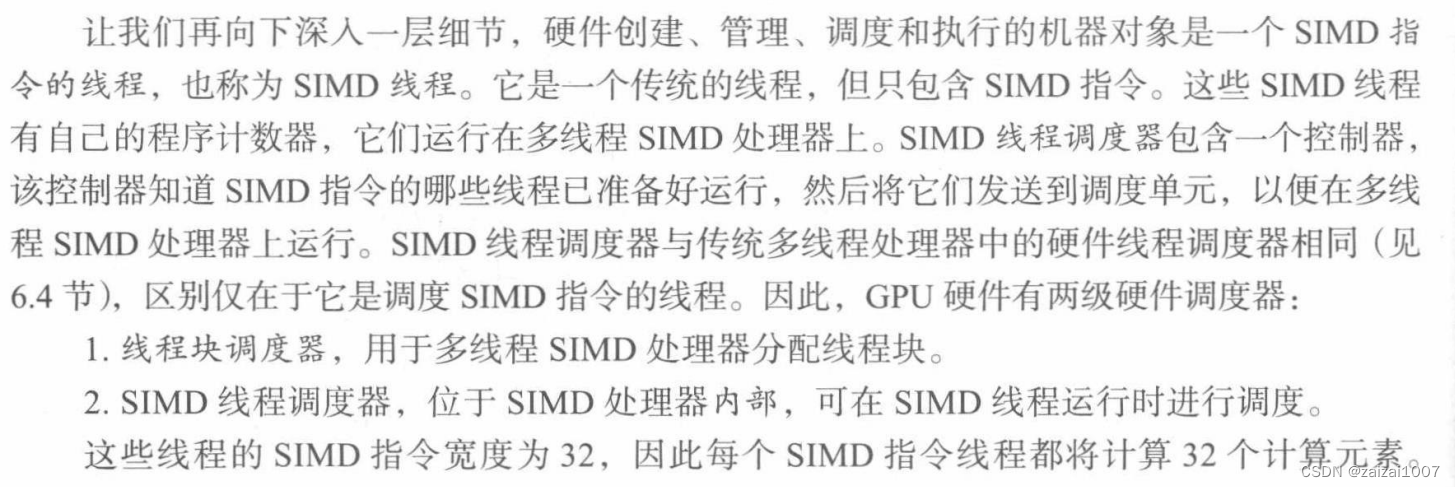
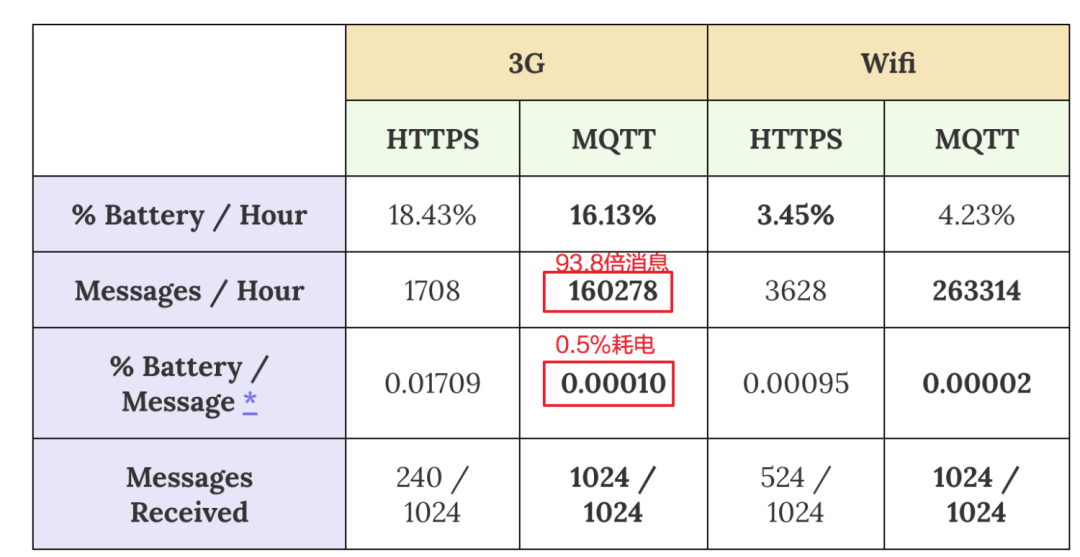
![[RF学习记录][ssh library][execute Command】关键字的返回值](https://img-blog.csdnimg.cn/72a23bafb56e49ebb956c7bf20bf051b.png)